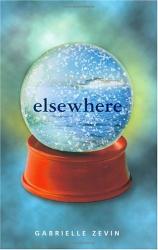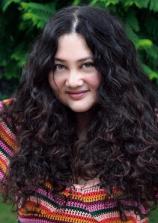Reading Group Guide
Discussion Questions
Elsewhere

1. Much of Liz’s initial anger at finding herself in Elsewhere is that her future plans are canceled and she will age in reverse. What future events are you most looking forward to? How would you feel about aging in reverse?
2. Water is a powerful image and symbol that runs throughout the book. Why does the author elect to use water as such an essential symbol? Discuss some of the other symbols, such as Liz’s stitches, the watch her father gave her, and the snow globe.
3. There are many characters who are part of the story of ELSEWHERE; all of them are critical to it. No characters, not even the canine ones, are minor to the story. Explore how the characters move the novel forward. How does each of them help Liz adjust to life on Elsewhere and come to understand that life on Elsewhere is something to be cherished?
4. If you were in Liz’s shoes, would you spend all you time on the Observation Deck or do you think you’d acclimate? Would you mourn the loss of your life on Earth? Would you view being on Elsewhere as a liberating change and fresh start?
5. Notice the allusions made to classic and contemporary literature throughout the novel. Liz recalls a line about antique lands. Aldous Ghent prompts Liz to read Shakespeare’s A Midsummer Night’s Dream. Liz reads Charlotte’s Web as she grows younger. Finally, Owen reads Tuck Everlasting to Liz when she is no longer able to read on her own. How does each address some facet of Liz’s life (on Earth and Elsewhere) and experiences?
6. How does the author use humor in the novel? What examples of wordplay are evident? Is the humor intended to defuse the emotion of a serious situation or scene? Is it a way to show how Liz is becoming acclimated to life on Elsewhere?
7. Liz and all the other arrivals in Elsewhere are encouraged to find an avocation to pursue during their time there. Ghent explains to Liz that an avocation is something that makes one’s soul complete (page 74). Some of the residents of Elsewhere work in avocations similar to the jobs they did on Earth; others have new ones. Marilyn Monroe becomes a psychiatrist. Curtis Jest decides to be a fisherman and comments that John Lennon is a gardener. How do the avocations of Monroe, Lennon, Owen, Betty, Curtis, and other characters reflect what they really want out of their new lives? What would you chose as an avocation?
8. This novel is divided into three separate parts and also employs a prologue and an epilogue. What purpose do the three parts serve? What important events occur in each of the three parts? Why did the author chose Liz’s dog, Lucy, to narrate the prologue? How does the epilogue bring the novel not to a close but to a resolution?
Elsewhere
- Publication Date: August 11, 2005
- Genres: Fiction
- Hardcover: 288 pages
- Publisher: Farrar, Straus and Giroux
- ISBN-10: 0374320918
- ISBN-13: 9780374320911








